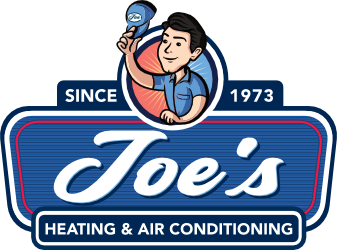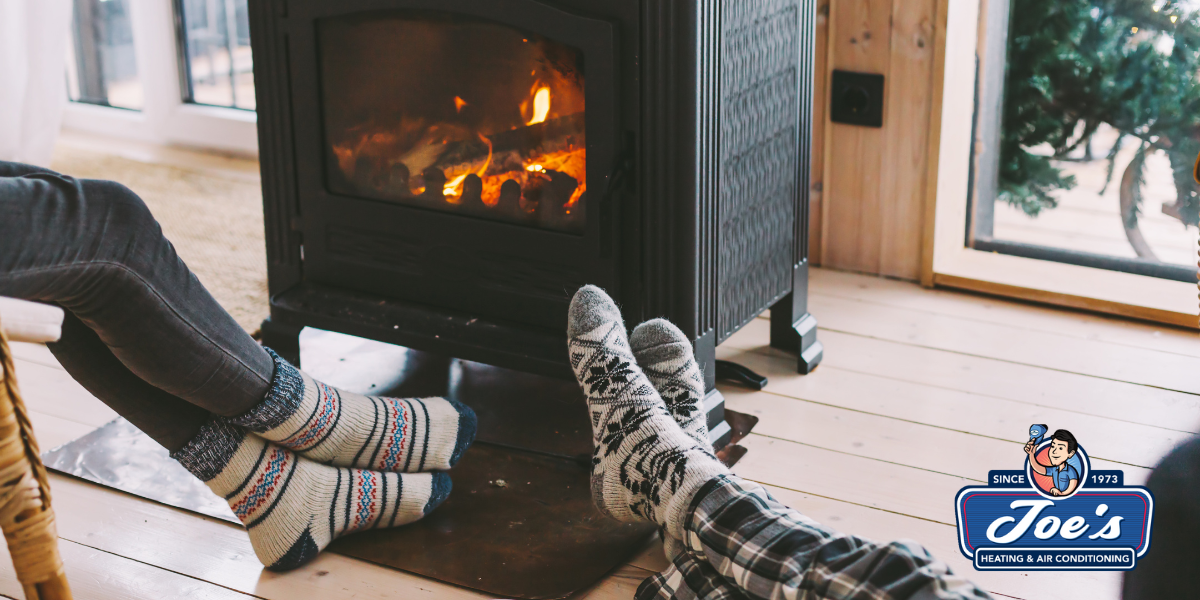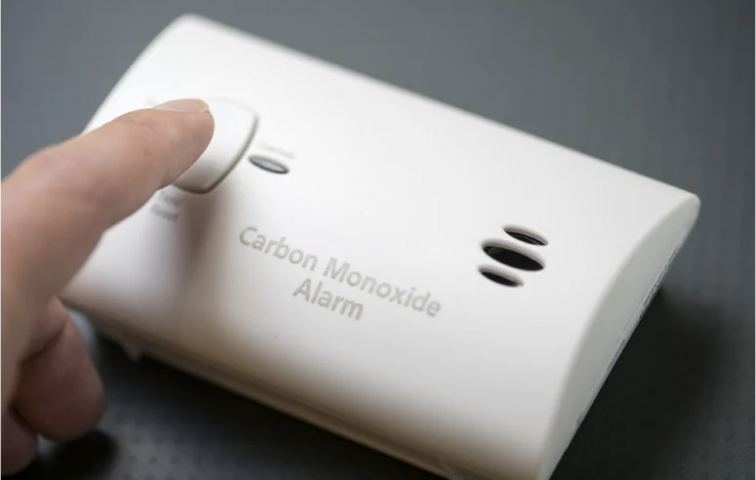Choosing The Best Heating System for Your Durham Region Home
Joe’s Heating and Air Conditioning has been delivering reliable, high-quality heating services since 1973. We use only premium equipment and materials that exceed basic government standards, ensuring durability, safety, and performance.
Our team of expert HVAC technicians is highly trained to provide exceptional workmanship and customer care. We take pride in respecting your time and budget, which is why we include complimentary equipment orientations with every installation.
As a homeowner in areas such as Port Hope, Bowmanville, Port Perry, Oshawa, Ajax and Pickering, you deserve dependable heating solutions to keep your family comfortable throughout the harsh Canadian winters. At Joe’s, we’re committed to meeting your needs, exceeding expectations, and giving you peace of mind.
To help you prepare, we’ve created this heating guide as a practical checklist for winter readiness. Remember, winter is coming sooner than later and it is time to prepare for the coldest months of the year with Joe’s Heating And Air Conditioning! At Joe’s we have got your home’s heat covered with various reliable methods of service to keep your home cozy, comfortable and warm all winter long.
What You Will Learn In This Guide!
This guide will break down common heating types and help distinguish which service is the best fit for your home this winter! It also offers helpful tips on how to choose a new heating system or maintenance and repairs to your existing one.
What This Guide Will Answer
- What are common heating systems?
- How do furnaces work?
- Heat pump benefits for Durham homeowners
- Should I rent or buy a heating system?
- Accessories!
- Maintenance!
- What are simple tips every homeowner should know?
- Where to start when buying a new heating system in the Durham region?
- What are signs my heating services need a repair or a replacement?
- Common heating services FAQs.
- What to look for in an HVAC company in the Durham region?
- Final thoughts.
- How do I contact Joe’s Heating and Air Conditioning today?
What Are Common Heating Systems
Choosing a new heating system for your home can feel like a big task but it doesn’t have to be. For most homes in the Durham region including Port Hope, Bowmanville, Port Perry, Oshawa, Ajax and Pickering, there are only a handful of common heating systems types including furnaces, boilers, and heat pumps.
This section will provide an overview of the different systems highlighting how they work as well as the different models, features, benefits and applications of each one to identify which ones are most relevant to you. The guide also covers related heating accessories such as thermostats, whole-home humidifiers, fireplaces and gas line installations.
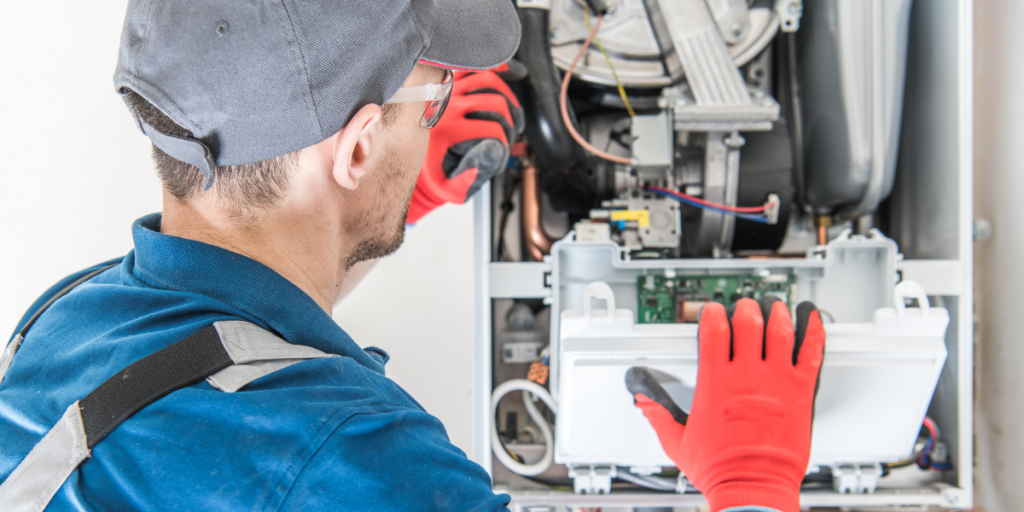
1. Types Of Furnaces
Here are two primary furnaces that fulfill different homeowner needs, in different types of efficient heating systems. Trane and Carrier are both offered in single stage, two stage or modulating furnace options that vary in features. Single stage furnaces provide consistent warmth in your home all winter long while having basic energy cost saving features.
Two stage furnaces are more advanced, reducing temperature variation in larger scale homes. A premium modulating furnace keeps on/off temperature fluctuations in your home consistent more efficiently than single or two stage furnaces.
Furnace Models:
1) Single Stage Furnaces (Standard)
Energy Efficiency: low
Modes: On/ Off features
Performance: MID
Price: $- LOW
2) Two Stage Furnaces (Advanced)
Energy Efficiency: MID- (96% AFUE)
Modes: High, Medium, Off
Performance: HIGH
Price: $$- MID
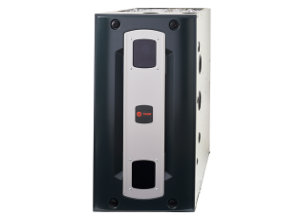
3) Modulating Furnaces (Premium)
Energy Efficiency: HIGH (97.3% AFUE and Energy star qualified )
Modes: Endless
Performance: HIGH
Price: $$$- HIGH
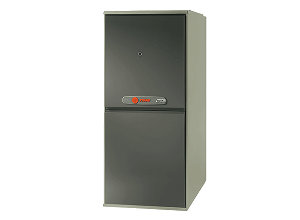
How Do Furnaces Work?
How do furnaces operate?
ANSWER: A furnace works by pulling in cool indoor air into the furnace, heating it, and redistributing it back into the house.
What is a burner?
ANSWER: Burners are inside the furnace to ignite the fuel with gas, propane or oil. All heat from burning fuel is moved to the heat exchange which heats up as the gasses pass through.
What is a heat exchanger?
ANSWER: A heat exchanger transfers heat from the burner into the air inside the furnace. This will keep the gasses separate from the air that will be circulated in your home while heating your exchanger.
What is a blower fan?
ANSWER: The blower fan turns on and pulls cool air from your home into the furnace through return ducts. After warm air is pushed through your home’s ductwork, onto the blower fan and is distributed all around your home to increase overall temperature.
Note: *Electric furnaces function differently. These types of furnaces use a resistive element to ignite fuel or heat a heat exchanger. *
ENERGY SAVING TIP
When you are selecting a new furnace check to see if it is ENERGY STAR® rated to make sure you are getting an energy efficient option.
2. Types Of Heat Pumps
Heat pumps have seen a rise in popularity in recent year due in large part to their versatility, energy efficiency and government backed incentives available to Oshawa homeowners. Heat pumps are highly efficient heating and cooling systems that transfer heat rather than generate it. In winter, they extract heat from the outside air (even in cold temperatures) and move it indoors.
In summer, they reverse the process, acting like an air conditioner by removing heat from the home. Here are three types of heat pumps varying in features; including the Mitsubishi Zuba-central, Bryant evolution extreme 284A and the Trane XV20i.
Heat Pump Models:
1) Mitsubishi Zuba-central
Performance: HIGH
Energy efficiency: HIGH (VCSI technology)
Price: $$- MID
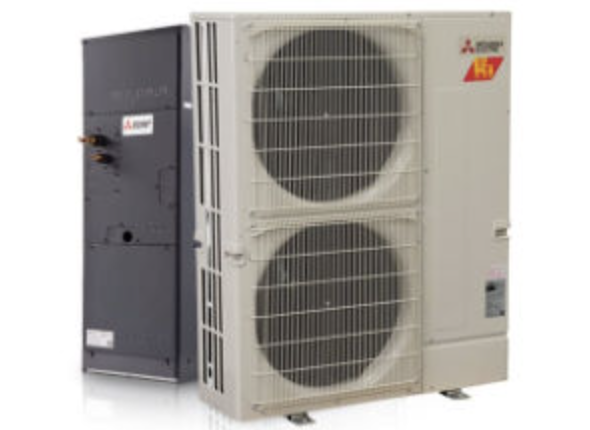
2) Trane XV20i
Performance: Premium
Energy efficiency: MID (20 SEER)
Price: $$$- HIGH
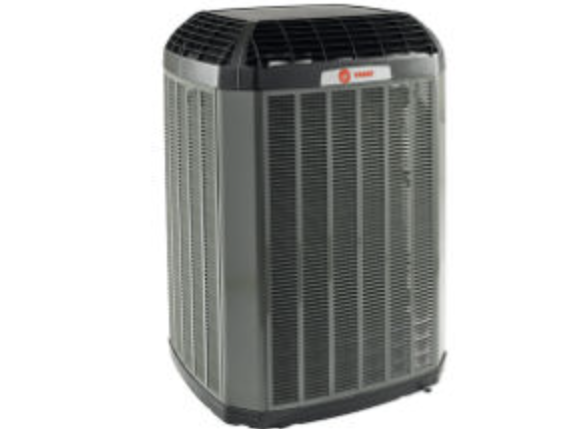
3) Trane Resolute
Performance: HIGH
Energy Efficiency: MID (20 SEER)
Price: $$- MID
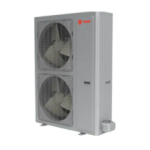
Heat Pump Benefits For Durham Homeowners
Year-Round Comfort:
Heat pumps provide both heating and cooling, eliminating the need for separate systems like a furnace and air conditioner.
Energy Efficiency:
They use significantly less energy than traditional electric or gas heating systems, leading to lower utility bills. Heat pumps are an increasingly popular choice for Canadians looking to improve home comfort, reduce energy costs, and support a more sustainable future.
Lower Carbon Footprint:
Since they rely on electricity and don’t burn fossil fuels directly, heat pumps help reduce greenhouse gas emissions, especially important as Canada shifts to cleaner energy sources.
Government Incentives:
Many provinces and the federal government offer incentives for people purchasing new heat pumps. Visit the Canada Greener Homes Initiative to help offset installation costs.
Cold Climate Performance:
Modern cold-climate heat pumps are designed to work efficiently even in temperatures as low as -25°C, making them suitable for most Canadian regions.
3. Boilers And Hydronic Systems
If you desire a central heating system that utilizes adding hot water to heat up your home, Hydronics or boiler systems are the perfect service for you! This form of heating service is the most comfortable, versatile, economically effective heating option. Hydronic systems lose only a fraction of warmth as it travels throughout homes, which reduces fuel consumption up to 40%. The three common types of hydronic systems to fulfill different homeowner needs include a NTI TFT series, NTI Vmax Trinity and our Triangle Tube Instinct Combi.
Boiler And Hydronic Models:
1) NTI TFT Series
Performance: HIGH
Energy efficiency: HIGH (reduced fuel consumption up to 40%)
Price: $$- MID-HIGH
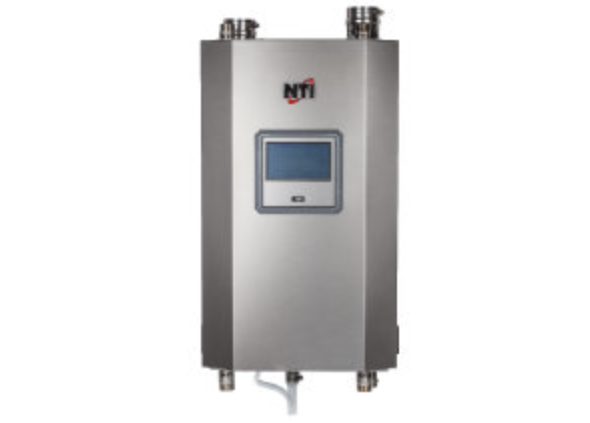
2) NTI Vmax Trinity
Performance: MID
Energy efficiency: HIGH (reduced fuel consumption up to 40%)
Price: $$- MID
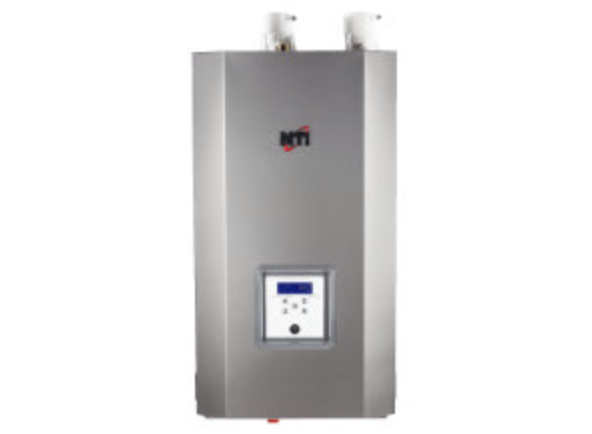
3) ATLA
Performance: HIGH
Energy efficiency: MID
Price: $$- MID

Should I Rent Or Buy A Heating System?
Depending on the type of heating system you choose, you’ll want to think about renting versus buying. Both are workable options and it comes down to your time, needs and budget for a heating system.
| RENT | BUY | |
| Initial cost | No upfront cost – fixed monthly payment | High upfront cost, full payment or financing needed |
| Maintenance | Maintenance and repair costs are often included in rental agreements | The owner is responsible for all maintenance and repair costs. |
| Upgrades | Easy to upgrade to a newer model when the rental agreement ends or is renewed | Must purchase a new system when upgrades are desired. |
| Ownership | You do not own the system, and it must be returned when the rental contract ends. | Full ownership, and you can keep the system for its entire lifespan. |
| Monthly payment | Ongoing monthly payments for the duration of the rental agreement. | No monthly payments once the system is paid off. |
| Flexibility | Easy to switch or cancel the agreement if your needs change. | Limited flexibility once purchased; reselling the system may be difficult. |
| Tax benefits | No tax benefits, as you do not own the system. | Potential tax benefits through energy-efficiency rebates or deductions. |
| Long term costs | May cost more over time due to continuous monthly payments | More cost-effective long-term, especially if the system is well-maintained. |
| End of life | Rental company handles disposal and replacement at the end of the system’s life | You are responsible for replacing or disposing of the system. |
Joe’s Recommendation:
While there are pros and cons to the rent vs. buy options, our experts generally believe buying a heating system and bundling an annual protection plan offers a lower total cost of ownership than renting. It also ensures proper system maintenance to minimize costly repairs and retains the maximum life expectancy.
Accessories
1. Whole-Home Humidifiers
Whole-Home Humidifiers- What Are They?
Whole-home humidifiers are devices integrated into a home’s HVAC (heating, ventilation, and air conditioning) system to maintain consistent humidity levels throughout the entire house.
How Do Whole-Home Humidifiers Work?
Unlike portable units that only affect one room at a time, these systems work automatically to add moisture to the air as it passes through the ducts, providing balanced humidity in every room.
What Are The Benefits Of Having A Humidifier?
- Proper humidity levels (ideally between 30–50%) improve comfort, reduce dry skin, protect wood furniture and floors
- lower heating bills: Humid air feels warmer, allowing lower thermostat settings
- help reduce issues caused by dry air, such as static electricity, sinus irritation, and increased risk of respiratory infections
NOTE: Whole-Home Humidifiers require professional installation and periodic maintenance. Make sure to clean and replace water panels or filters, to prevent mold or mineral buildup.
TECH TIP
Remember to replace or clean your whole-home humidifier pad each year. This is just as important as replacing or cleaning your furnace filter!
2. Thermostats
Thermostat Models
1) Basic Non-Programmable
PROS
- Economical
- Simple to control features
- Affordable
CONS
- Temperature only adjusts manually on the thermostats settings
2) Programmable thermostats
PROS
- Affordable
- Temperature adjusts automatically
- easy to operates
- Advanced: switch between heating and cooling modes for varying seasons
CONS
- Not suitable for all systems
3) Smart Wi-Fi Thermostats
PROS
- Control Settings by computer or smartphone
- Are able to remember and adjust based off past temperature patterns
- Energy-efficient and convenient
- Long term money saver
- Communicates with furnace feature
CONS
- More expensive than traditional thermostats
- Not all smart Wi-Fi thermostat work with every heating and cooling system
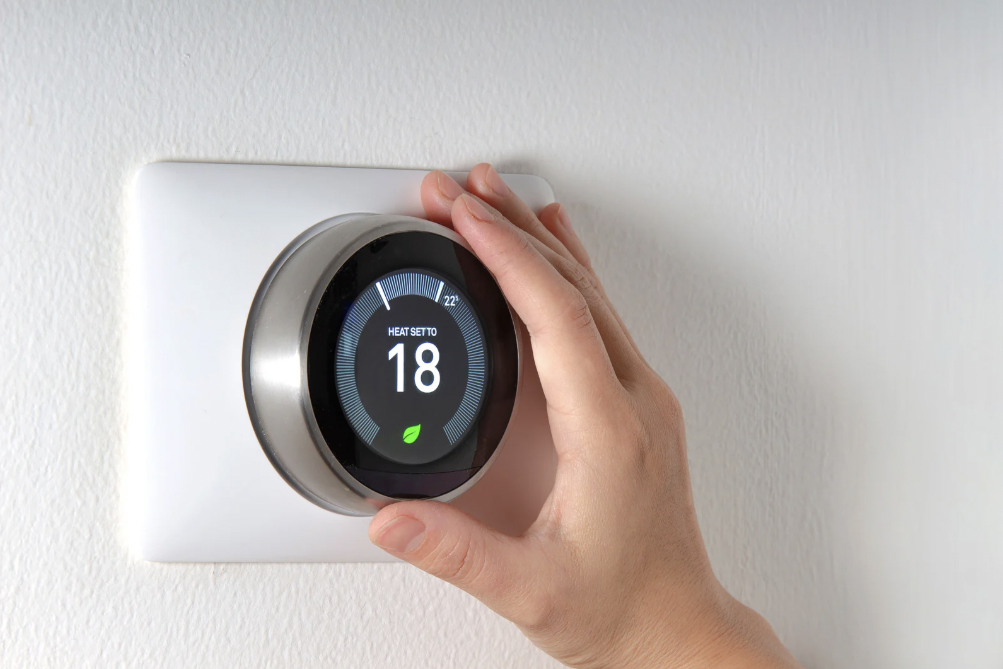
3. Gas And Electric Fireplaces
Fireplaces are a popular home heating choice that also add ambiance and style. Whether used as a primary heat source or to supplement a furnace, they offer both warmth and visual appeal. Modern fireplaces are much more efficient than older wood-burning models and come in a variety of fuel types, with gas and electric being the most common options for convenience and ease of use. Sometimes heating your home can also include adding an aesthetic feature to elevate your home. Below we have listed all three common fireplaces by products, features, performance and energy efficiency, so you don’t have to!
Fireplace Models:
Gas Fireplaces
1) Napoleon Outdoor Riverside 42
Performance: Premium HIGH
Energy efficiency: HIGH
Price: $$- MID
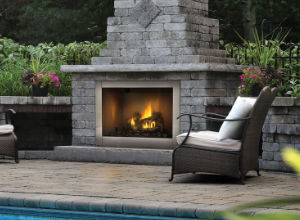
2) Napoleon Luxuria Gas Fireplace
Performance: MID
Energy efficiency: MID
Price: $$$- HIGH
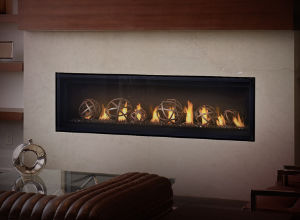
3) Napoleon Alluravision Series Linear Electric Fireplaces
Performance: Premium HIGH
Energy efficiency: HIGH
Price: $- LOW
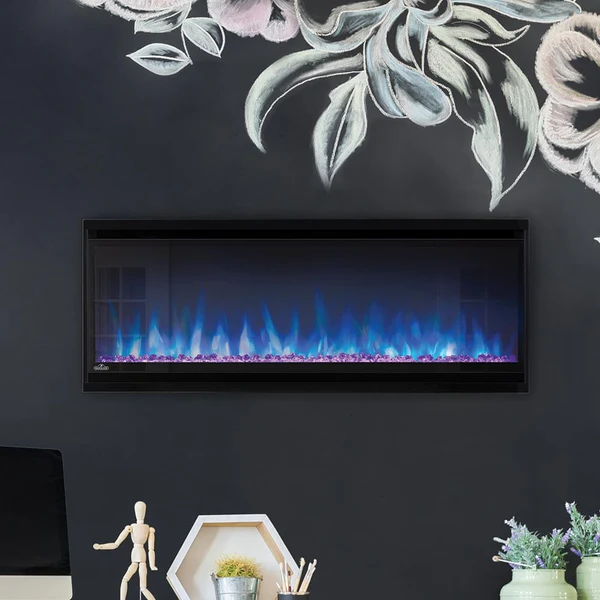
4. Hot Water Heaters
Buying a water heater can be a challenging consideration to have; whether you want a tank or tankless heater, are wondering what energy efficiency you should choose or other factors you might not know we offer. This guideline helps distinguish these uncertainties you might have about water heaters. All of these listed water heaters are ENERGY STAR approved starting with the Rinnai RUR 199iN, Rinnai RU160iN and the John Wood Proline XE Power Vent.
Types:
- Traditional Storage Tank Water Heaters
- Tankless Water Heaters
Hot Water Heater Models:
Tanked Water Heaters In Durham
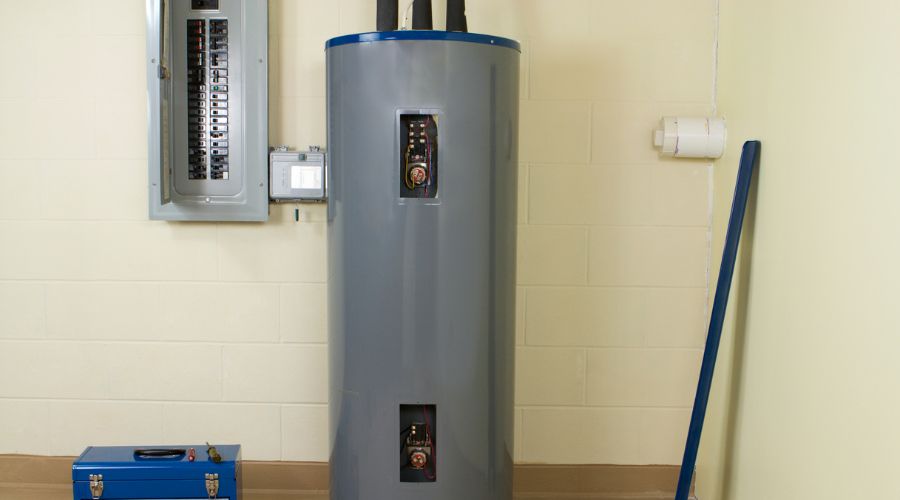
1) John Wood Proline XE Power Vent
Performance: Premium HIGH (ProLine XE power vent model)
Energy efficiency: MID (0.70 energy factor)
Price: $$ LOW-MID
Tankless Water Heaters In Durham, Ontario

1) Rinnai RX160IN
Performance: HIGH
Energy efficiency: HIGH
Price: $$$- HIGH

2) Rinnai RXP199iN
Performance: Premium HIGH
Energy efficiency: HIGH
Price: $$$- HIGH
5. Gas Line Installations
Gas lines can be supplied, installed and hooked up to new appliances for you! The majority of gas lines can be installed for fireplaces, garage heaters, pool heaters and even generators. It is important to get your barbeque, stove or dryer’s gas line checked before the winter, to ensure each heating system is running smoothly before HVAC businesses busiest time of the year.
We suggest homeowners pay for a professionally trained and licensed technician to upgrade or install new gas lines safely, as it is a very tedious process. Hiring a professional should make your application and installation process seamless, if not check their warranty.
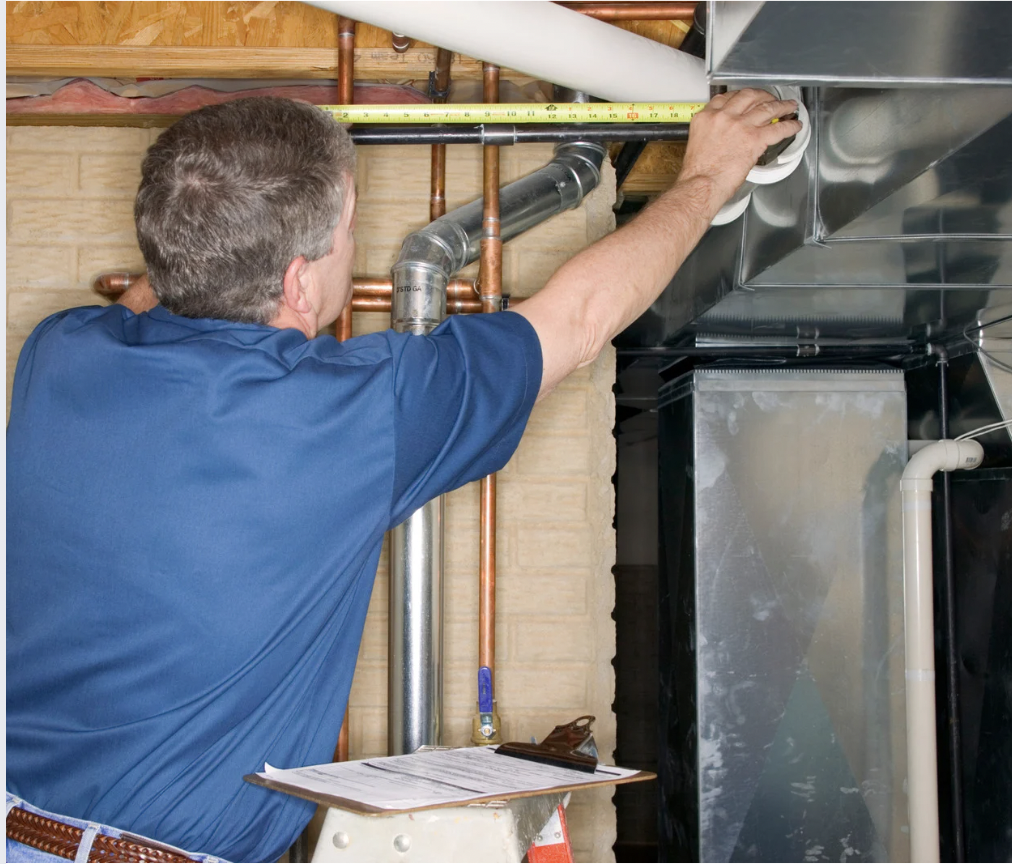
Gas line services:
- Supply
- Install
- Hook up new appliance
Types:
- Gas lines for fireplaces
- Gas lines for garage heaters
- Gas lines for Pool heaters
- Gas lines for generators
Furnace and Heating System Maintenance
Maintenance is a crucial factor when preparing your heating system to protect your Durham home this winter. Joe’s Heating & Air Conditioning provides this blog to ensure our customers have heating that keeps their home remaining comfortable, energy-efficient, and safe throughout the colder months. Annual maintenance of your furnace, heat pumps or boiler not only prolongs the lifespan of the system but also helps prevent unexpected breakdowns and costly repairs. In this section, we’ll cover essential maintenance tasks to ensure your heating system runs smoothly all winter long.
Where To Schedule a Heating System Inspection In the Durham Region?
It’s best to ensure your heating system is running smoothly before the cold weather arrives to minimize the likelihood of an emergency repair issue with your furnace, boiler or heat pump when you most need it to work! You don’t want to face any issues with your heating when you actually need it. Try to book furnace maintenance early to beat the rush and long wait times.
Here are some steps to take to ensure your heating system is prepared for winter:
- Schedule a professional inspection
- Check for potential safety issues like common monoxide detection
- Change furnace air filters (change or replace furnace filters, humidifier pads, ventilator filters)
- Check your thermostat & batteries and replace if required
- Declutter your furnace room
- Consider purchasing a heating protection plan
TECH TIP
Air filters are categorized according to Minimum Efficiency Reporting Values (MERV) ratings. MERV ratings range from 1-20. Note that filters with a MERV between 7 and 12 are considered good quality.
How To Know Whether To Replace or Repair Your Heating System?
When you need help with your heating system, a technician expert should evaluate your system, diagnose the problem and provide you an up front estimate to complete the necessary repairs that take into consideration your budget and the age of your heating system.
If your heating system is over 10 years old, or requires frequent repairs, it can actually be a big money saver to invest in a new system. A new furnace or heat pump can reduce or eliminate repair costs and also provide great energy efficiency that comes with newer technology and can lower your monthly utility bills. As a general rule of thumb, for any repair on an older furnace or boiler that is 10+ years old and will cost more than $1000, it may make the most sense to invest in a replacement system and enjoy some of these ongoing repair and maintenance cost saving benefits.
Regardless of your decision, it is important to consult a company you can trust and who is licensed and is qualified to install, repair and maintain your heating system.
Furnace Repairs
If you have a gas or electric furnace, here are helpful signs you might need to request a repair before the coldest months hit. Watch out for:
- Abnormal increase in gas or electricity bills can mean your furnace is no longer reaching basic efficiency standards. Sudden spiked utility prices could be used to be put towards a reliable repair which is more energy efficient.
- Yellow flickering burner flames is a sign your furnace is aging or faulty. The burner flame should ideally appear as a bright blue colour. Furnaces with yellow flames means the gas isn’t burning properly which ultimately means the system won’t ever be able to heat up properly. If you see excess moisture or rusting pipes it’s time to get a repair.
- Loud rattling noise or poping sounds from the furnace means there is a problem with the blower fan. If you are experiencing loud noises, it is a clear indication your furnace needs urgent repair.
- Cold or uneven heating spots, mean your furnace is not expelling enough heat to evenly warm your home. We recommend you replace the old furnace with a newer installation as a repair will only resurface the problem because your unit is aging.
- Obvious Issues: Broken or cracked glass, ignition issues, frequent cycling, flickering pilot lights, strange odors or fault thermostats.
If you are experiencing these issues please don’t wait to call a trusted, local HVAC professional to come to your Durham region home to inspect your furnace, heat pump or boiler to correctly diagnose and remedy the issue.
SAFETY TIP
When you are doing maintenance around your home, be sure to replace the batteries and test both your fire alarm and carbon monoxide detector. This should be done at least twice a year.
Gas Fireplace Repairs
Despite high technologies and fireplace safety precautions, regular maintenance is mandatory, to ensure fireplaces are burning safely and efficiently. Just because your fireplace has been off all warm seasons, does not mean it is always ready to go for the coldest months. Ensure your fireplaces are reliable for the winter by getting a maintenance check up! Watch out for the following examples that could suggest your fireplace needs a repair:
- Rotten egg smells may be a very serious signal that your house has a gas leak somewhere. If you smell gas, leave the premises immediately and call a service provider to repair your fireplace as soon as you are in fresh air.
- Pilot light problems are when your light frequently goes out or refuses to stay list. This is a direct sign that something is wrong with the thermopile or wiring and needs urgent replacing.
- If your fireplace is malfunctioning on and off call us at Joe’s Heating & Air Conditioning to resolve the issue by setting up a repair! This could mean a range of problems from carbon build up to a worn out generator.
Water Heater Repairs
Avoid taking ice cold showers in the winter, the outdoors is already cold enough! A water heater who needs a repair or replacement is typically not servicing up to standards which is costing you a lot more money to operate. Here are major signs to look out for.
- If you are witnessing irregular water temperatures in the shower going from hot to lukewarm all of a sudden is a sign that something is wrong with your water heater. We recommend contacting a technician to check the issue and to consider if a replacement or repair is needed.
- Any discolouration of water that comes out of your home’s tap should be clear and colourless. If you notice the water coming out is rusty your water heater might need to be replaced or repaired.
- Running out of hot water is a direct sign that your water heater is not able to provide its main function. This could be a sign that you need to upgrade the size of your water heater or that it could be poorly set up.
ENERGY SAVING TIP
EF is used to measure efficiency in water heaters by how much hot water is produced per unit of fuel consumed, the higher EF number the more efficient the water heater is!
Common Heating Services FAQs
Q1: How often should I schedule maintenance for my heating system?
ANSWER: We recommend scheduling furnace or boiler maintenance once a year. Regular tune-ups extend the life of your system and improve efficiency.
Q2: What’s the difference between a single-stage, two-stage, and modulating furnace?
ANSWER: Single-stage furnaces always run at full capacity. While a two-stage furnace has two settings being low and high, for better efficiency and comfort. Lastly a modulating furnace, adjusts in small increments for precise temperature control and max efficiency.
Q3: What are energy-efficient furnace systems?
ANSWER: High-efficiency furnaces are about 90–98% AFUE, tankless water heaters, ECM motors, and modern heat pumps to help reduce your energy bills and environmental impact.
Q4: What are gas line installations used for?
ANSWER: Yes! Gas line installations can be connected up to gas lines for BBQs, fireplaces, stoves, pool heaters, and more….done safely and to code by certified gas technicians.
Q5: Why is my furnace blowing cold air?
ANSWER: Possible causes include a dirty air filter, thermostat issues, pilot light problems, or ignition failure. Joe’s Heating and Air Conditioning provide quick diagnostics and 24/7 emergency repair.
Q6: Why should I choose a licensed and insured technician for my heating system installation?
ANSWER: All technicians installing or repairing in your home should be licensed, trained, and insured. Having a licensed technician prioritizes safety, follows local codes, and offers full system orientation after installations.
Q7: What Is The Best Time Of Year To Get My Heating System Inspected?
ANSWER: It is important to book heat maintenance check ups, heat installations and diagnostics before extreme winds with below zero temperatures make an appearance! Autumn is a great time to make sure your home heating is up to date.
What to Look for in an HVAC Company Near Me in Durham
1. Reputation & Google Reviews
A company’s reputation is the best indicator to show its reliability and service quality. Forms of reputations you can find on the company’s google reviews, yelp and how they rank on google maps. Evaluate any positive and negative reviews as that reflects the company’s dependable service, level of professionalism and customer satisfaction.
2. Licensing & Certification
To receive maximum benefits from an HVAC company, check to see if they are fully licensed to operate in Ontario or have certifications like the TSSA. Licensing shows the company reaches provincial safety and technical standards while also holding legal authorization to perform their work.
3. Insurance & Warranties
The HVAC company you hire should have liability insurance and workers compensation coverage as this protects you of damage costs. It is important to ask about the company’s warranties, as warranty terms should clearly state they cover equipment and labour.
4. Experience & Expertise
We would suggest hiring a company who have renowned experience in the field for several years in the Durham Region. Quality HVAC technicians should have expertise in the following: installation, repair, maintenance of furnaces, air conditioners, heat pumps, indoor air quality and systems.
DO NOT hire someone who does not have expertise in the service you desire. Experienced technicians are better equipped to diagnose issues accurately and recommend cost-effective solutions.
Final Thoughts
Congratulations on reading through this heating guide. At Joe’s Heating and Air Conditioning, we are committed to educating homeowners on all aspects of their heating systems, Whether you are installing a new heat pump, replacing your furnace or boiler or completing a furnace repair or tuneup, we hope you are now in a better position to make a more informed decision.
If you are seeking assistance from an honest and professional HVAC company that serves the Durham region we hope you will give Joe’s Heating and Air Conditioning a call. For over 50 years we have been providing expert advice and professional HVAC service to homeowners throughout the Durham region including Port Hope, Cobourg Bowmanville, Port Perry, Oshawa, Whitby, Ajax or Pickering. With over 600+ 5 star reviews, you can trust us to deliver high-quality heating services and advice regarding HVAC installations, repairs and maintenance.
Our team is available 24 hrs a day and 7 days a week to assist. Call Joe’s Heating & Air Conditioning today at (905) 434 6788.


